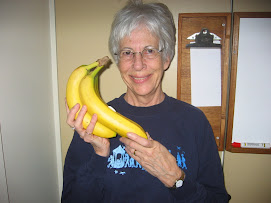I had strong negative initial reactions to these memoirs, but after a week or so I've changed my mind about both.
When I tried to explain the premise of Eat, Pray, Love to Jerry, I said, "Elizabeth Gilbert recovered from a bad divorce and spiritual depression by going to Italy, India, and Indonesia to find herself."
"Not bad. How could she afford it?"
"Well, she had a successful career, but she quit it, so I think she wasn't worried about money, and I think she got the book contract before she went."
"And I assume she was healthy."
"Healthy, young, and beautiful."
"Yeah, she had a lot to recover from."
I agreed. Sometimes it's hard to empathize with someone's angst when that's all they have to worry about.
However, despite the fuzzy underpinnings of the book, I enjoyed it. Who wouldn't want to go to Italy and eat gelato and real pizza, to India and do asanas in an ashram, to Indonesia and find romance? Should I sneer just because she's young, healthy, rich, healthy, able to get a book contract, and did I mention healthy?
Sick Girl is very different. Amy Silverstein was not healthy. At the age of 25, she received a heart transplant after a virus and cardiomyopathy destroyed her own already damaged heart. She has lived longer than any other person with a heart transplant, but she shows that "recovery" is a sliding scale: they don't just pop in the new heart and you walk off healthy. Her well-being, such as it is, depends on her taking constant meds that keep her immune system from functioning and leave her prey to any germ around. She's constantly exhausted.
And she fights. In the book she traces how she fought the medical system, at first by screaming at it, then by a kind of passive-aggressive hostility, and finally by standing up for herself in a way that the doctors could understand. She fights to act "normal" all the time, even when she's obviously overtaxing her body. She doesn't sound like an easy person to be around, and at first I wanted to shake her and tell her to grow up, for heaven's sake. She's alive, even if she isn't comfortable. She has lived to see her son grow up, to get ten years more than they expected with her husband, to see her book published.
But as my negative reactions circled around in my head, I kept thinking of Rita Mae Brown's comment that there is no Olympics for pain. We're not in a contest to see who can suffer the most, whose tragedy is the greatest, or who can put on the perkiest smiley face. It's easy for me to sneer at Liz Gilbert's misery, because I've never had a divorce or spent much time dealing with a need for greater spiritual awakening; it's almost as easy to complain that Amy Silverstein was ungrateful and childish because she pulled IV needles out and screamed at her doctors (though I can relate to the desire if not the performance).
Let's face it: no matter what any of us are dealing with, it's the same. We do what we have to do, on the basis of incomplete information about a situation that we didn't choose in the first place. That's true of Gilbert, of Silverstein, of me, of you.
Subscribe to:
Post Comments (Atom)

No comments:
Post a Comment